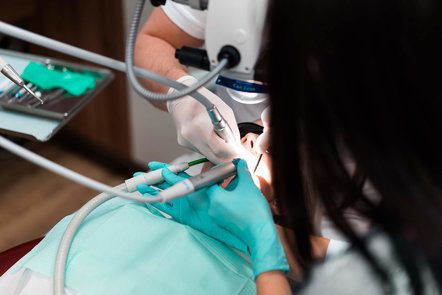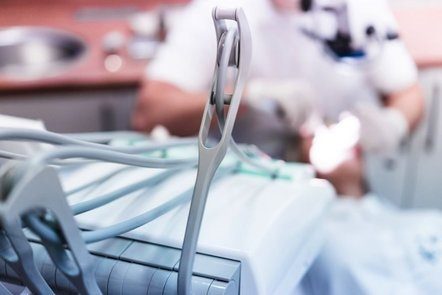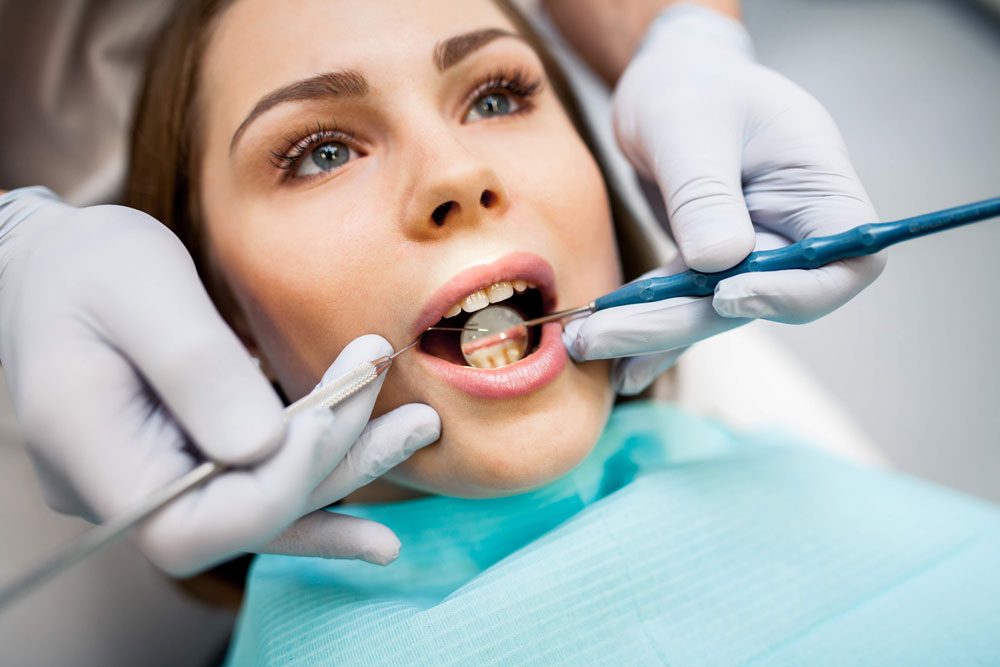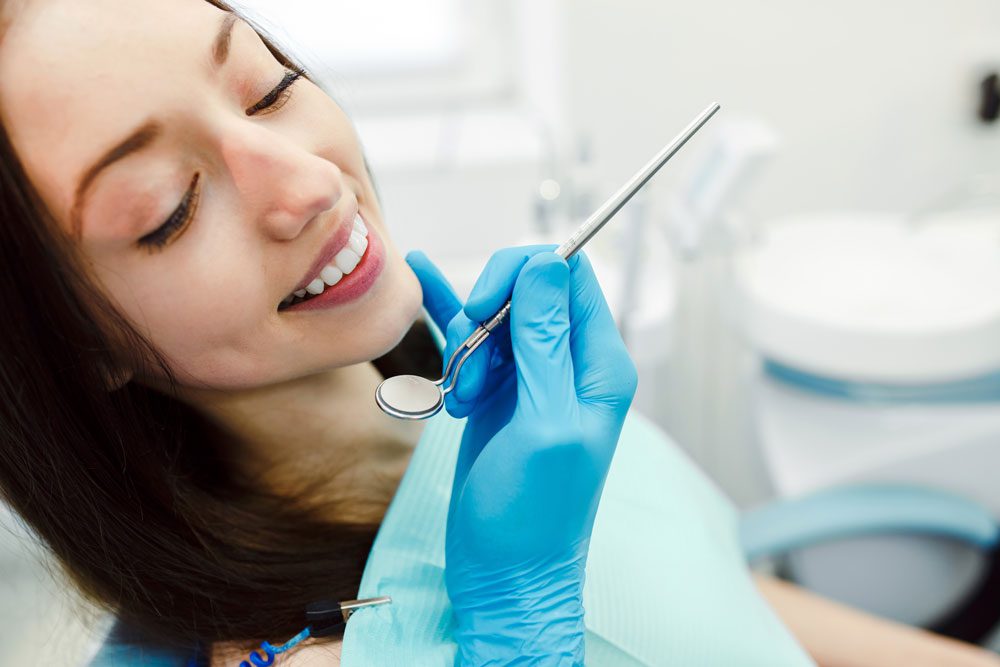Periodontics


What can you do?
- The first step in the treatment of periodontitis is professional oral health care. The dentist removes tartar and plaque with the help of special tools. Depending on the severity of the disease, it may take several visits. The dentist will also explain the importance of personal hygiene and show how to care properly for the teeth.
- After the procedure, the teeth may be sensitive and root surfaces may be more exposed. It should get better. The sensitivity of the teeth diminishes within a few weeks, the gums heal, the swelling of the inflamed gum tissue goes away. Meticulous oral hygiene should be carried out to protect the damaged teeth, so that they would not have to be removed. With proper care the shallow pockets in the gums disappear within a couple of months, the deep pockets decrease significantly, the teeth are not loose any more. Good oral hygiene can help to avoid surgery.
- Surgery might be necessary if inflammation and deep pockets remain. A periodontist may perform flap surgery to remove tartar deposits in deep pockets. This common surgery involves lifting back the gums and removing the tartar. The gums are then sutured back in place so that the tissue fits snugly around the tooth again. After the surgery, the gums will heal and fit more tightly around the tooth.
- The next step is supportive periodontal therapy. Periodontitis is a disease that can only be stopped, but not completely cured, so it is extremely important to follow all the recommendations of periodontist and attend the dental appointments regularly. Otherwise, the disease recurs and becomes even more difficult to treat. The patient should visit the dentist 2-4 times a year. The doctor will re-evaluate the teeth condition, perform professional oral health care and decide what treatment is necessary. Good daily oral care and regular visits to specialists will help to keep the teeth healthy for many years.
Other procedures
- Tongue-tie and lip-tie treatment. Tongue-tie is a condition that restricts the tongue’s range of motion when an unusually short band of tissue (lingual frenulum) tethers the bottom of the tongue’s tip to the floor of the mouth. Tongue-tie can affect eating, speaking, even teeth positioning. In most cases, tongue-ties are treated with a minor surgical procedure to release the tie. It is a simple painless procedure that only takes a few minutes. It’s usually done in-office using a laser.
- Crown lengthening procedure. Crown lengthening can be necessary if there is not enough of the tooth in place to hold the crown on its own. Crown lengthening reduces gum tissue and shaves down bone when necessary so more of the tooth is above the gum’s surface.
- Gingivectomy. Gingivectomy is a dental procedure in which a dentist cuts away part of the gum. Using a surgical scalpel, the tissue is trimmed and removed. Electrosurgery (when high-frequency electrical current passed through tissue) and laser are used more and more often. These methods usually provide faster healing and less discomfort after the procedure. Gingivectomy is done under local anaesthetic, so this procedure is pain free. It usually takes from a few minutes to an hour, depending on how much tissue needs to be removed.
Reasons You Might Need a Gingivectomy
- Gum disease can often lead to the need for a gingivectomy. Gingivitis can create “pockets” in the spaces between the teeth and the gums. Bacteria makes these pockets home and irritates the gums further. Gingivectomy reduces these pockets, making treatment easier.
- A crown lengthening is done using gingivectomy around the tooth.
- Some medicines and rare diseases cause too much gum tissue. Aside from cosmetic reasons, this condition can interfere with the way you eat and the way you talk. Gingivectomy is used to remove excess gum tissue from around the teeth. The appearance of gums improves.
- A “gummy smile” can also be a reason to lengthen the crowns. If the gums climb higher on the teeth than is aesthetically appealing, our dentist can reshape them to reveal more of the teeth. This can sometimes drastically improve the smile’s appearance.
- After the procedure, the dressing is applied. It lasts for 1-2 weeks and protects the wound surface. The gums restore in 3-4 weeks. Healing after gingivectomy may take a few weeks, depending on the patient, the scale of surgery and method used.

Our specialist will tell you everything about the procedures and answer any questions you might have during the consultation.
